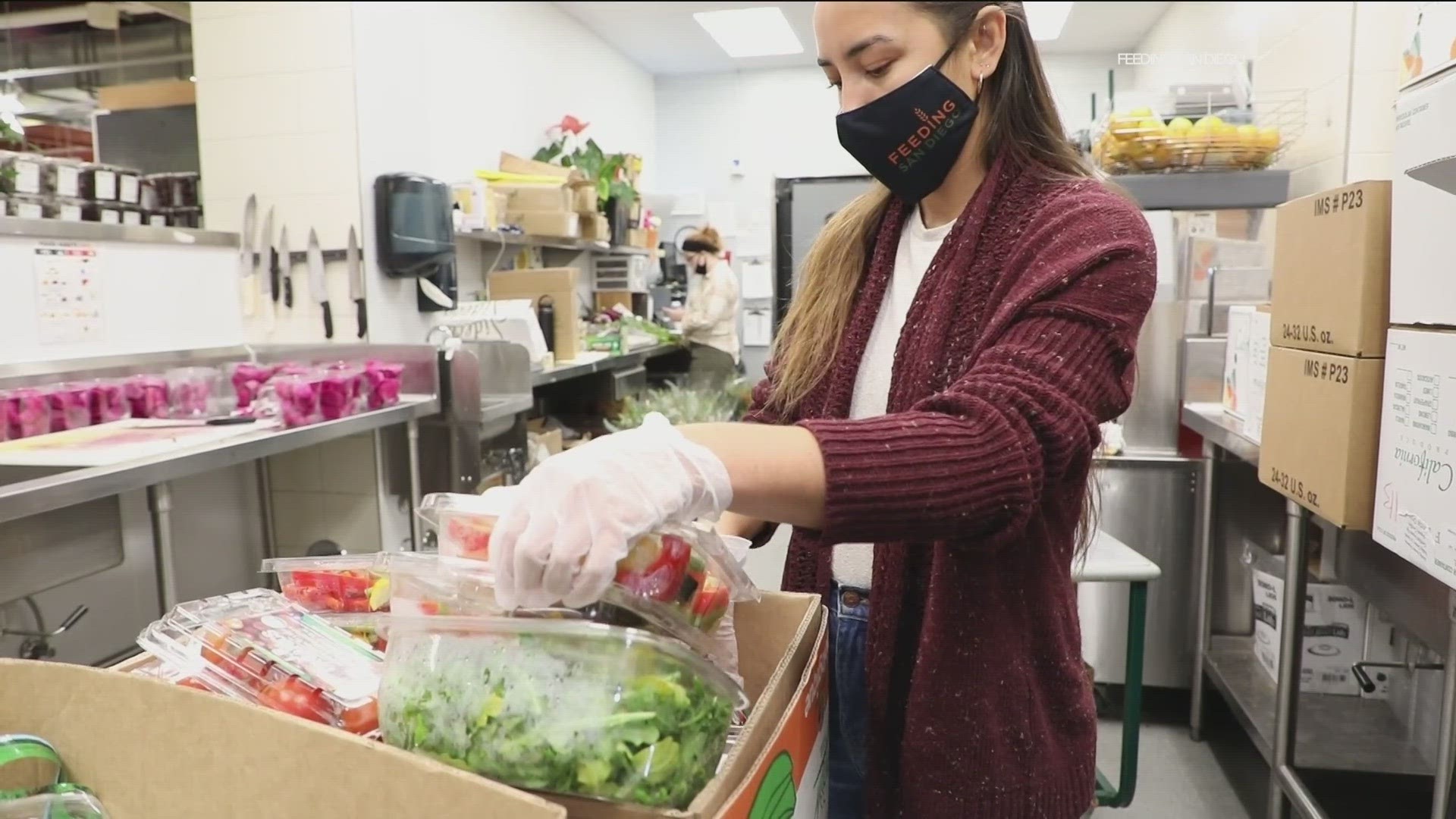SAN DIEGO COUNTY, Calif. — Local food rescue organizations like Feeding San Diego are now penning new contracts with food donors as a new law requires more donations of uneaten food.
At the start of 2022, Tier 1 of Senate Bill 1383 required supermarkets across the state to participate by donating uneaten but edible food to rescue organizations before throwing it away.
Tier 2 took effect at the start of this year, 2024, and now requires the same of hotels, cafeterias, restaurants, and large event venues.
“At a supermarket, you’re seeing a lot of prepackaged foods,” said Kate Garrett, Director of Supply Chain with Feeding San Diego. “Foods that you and I might buy at the grocery store. But with the Tier 2 businesses, we’re actually seeing prepared food. So, we’re seeing pulled pork, grilled chicken, macaroni, and cheese. Things that might be in a tray that can actually be donated to an organization, a partner of ours that can then be re-purposed and create meals.”
One of these donor partners is the banquets and events department at the San Diego Zoo.
“A lot of times we have larger parties, anywhere from 100 up to 2500 people,” Lauren Campbell, Banquets & Catering Manager at San Diego Zoo told CBS 8. “We can be over prepped on food and after an event is done we take the food to the back where they properly store it, they chill it, they take the amount of pounds, the allergies, what kind of product it is. That’s when I go into our MealConnect.”
Feeding America developed the MealConnect app for just that reason. An easy way for businesses with a surplus of food to connect with local organizations dedicated to feeding those in need – thinks churches, shelters, and schools – that can distribute that surplus food.
“We work here because we want to take a part in conservation and a lot of that is also eliminating waste,” Campbell added. “When you become part of a banquets and catering department, there’s a time where potentially we could have thrown it away. But it’s also inspiring to know that we can take this food put extra time into our day, and know that our food is going somewhere to a good place.”
“I think the fortunate thing about this law is that it’s getting the word out,” Garrett said. “More and more people are becoming aware of the fact that food in the landfill does harm the environment. So in reality this law is a humanitarian and an environmental support.”
State officials say the goal is a 75 percent reduction in organics disposal and at least a 20 percent increase in edible food recovery.
“It is very rewarding to know that the hard work that we put into the delicious food is not only feeding the people that come to our events, but it’s actually going to people that need it,” Chef Zaz Suffy with the San Diego Zoo told us.
Only 5 percent of Feeding San Diego’s operating budget is funded by the government. That’s where philanthropy is so important. Every dollar donated can help in connecting more prepared meals with organizations that can get them to those in need. You can find out more info and get connected with someone from their team by going to the Feeding San Diego website.

